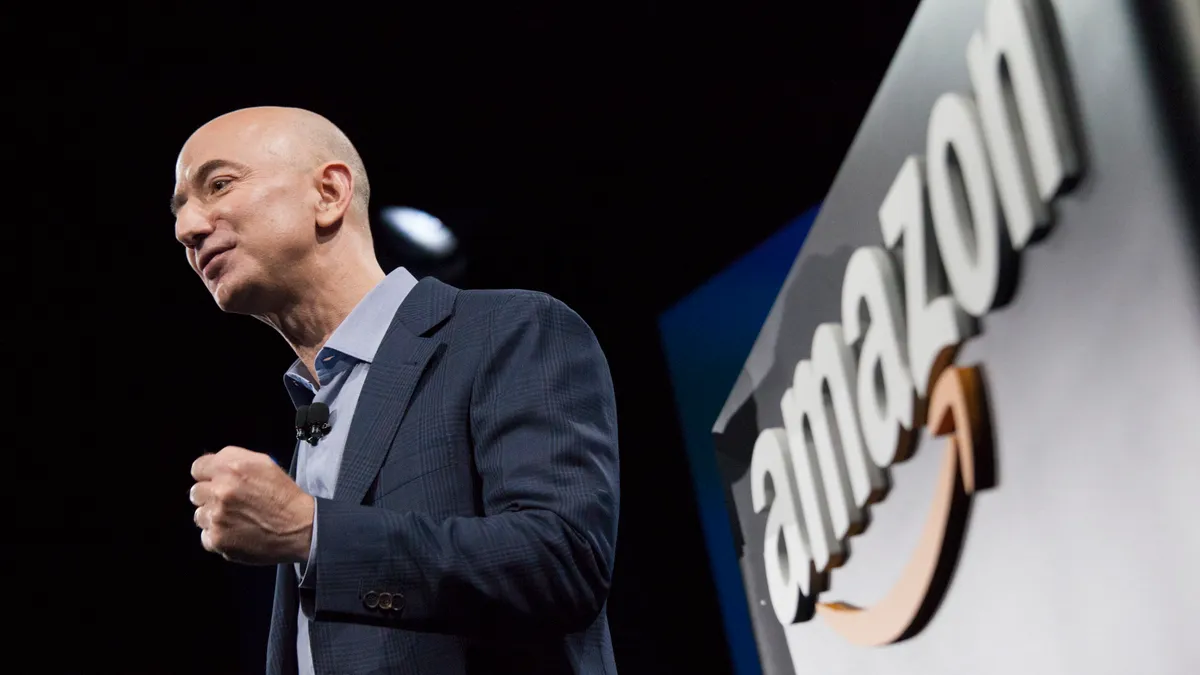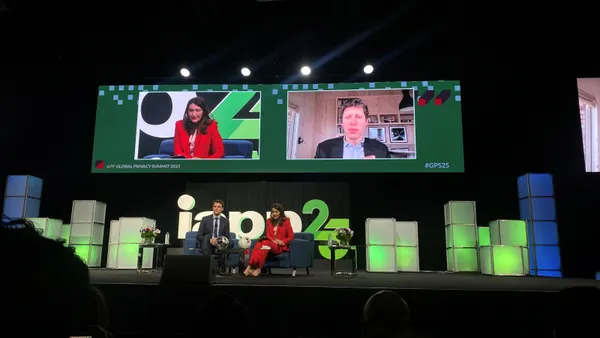Dive Brief:
-
Amazon founder and CEO Jeff Bezos doesn't fear a future in which robots force a vast number of humans out of work, saying such views are "unimaginative" in their ability to envision what future jobs may look like, according to a CNBC report on statements Bezos made during last month's George W. Bush Presidential Center Forum on Leadership.
-
Bezos added during his on-stage Q&A at the event that artificial intelligence and automation should instead improve the quality of jobs, offer humans new job opportunities and lead to greater overall wealth.
-
The Amazon chief also said he doesn't believe that increasingly powerful AI creations could be capable of conquering humans, but does have concerns about the rise an use of autonomous weapons.
Dive Insight:
It's nice to know that the chief of a company with more than a half million employees worldwide doesn't believe robots will take over a vast number of human jobs. But considering Amazon is one of the most aggressive corporate world adopters of robots and automation in its workforce, it's even nicer to know.
Being so aggressive in this area hasn't stopped Amazon from hiring humans either. The company said just days ago that it had plans to hire as many as 2,000 technology workers, and later this year it will construct its second headquarters, which is expected to employ roughly 50,000 workers.
Bezos isn't the only one with a somewhat bright view of the future of employment in the age of robotics. Author Joe Atikian just took a similar positive view writing in the The Globe and Mail about how long-ago automation in banking and grocery store checkout lines has yet to wipe out jobs in those sectors.
Bezos, Atikian and others believe the key lies not in protecting human employees from a transition to robots, but better preparing them for it by retaining them for different jobs, much like Boxed has done in its New Jersey fulfillment center.
The evolution of technologies like robotics and AI will indeed change the way we work, and who (or what) ends up performing different kinds of jobs. The change may seem to be happening little by little right now, at a speed we can all handle, but soon enough the pace of change will become more dramatic. PricewaterhouseCoopers recently predicted that while automation will put about 3% of jobs at risk by the middle of the next decade, that figure will jump to 30% by the mid-2030s, and will be even higher for jobs with lower education requirements.












